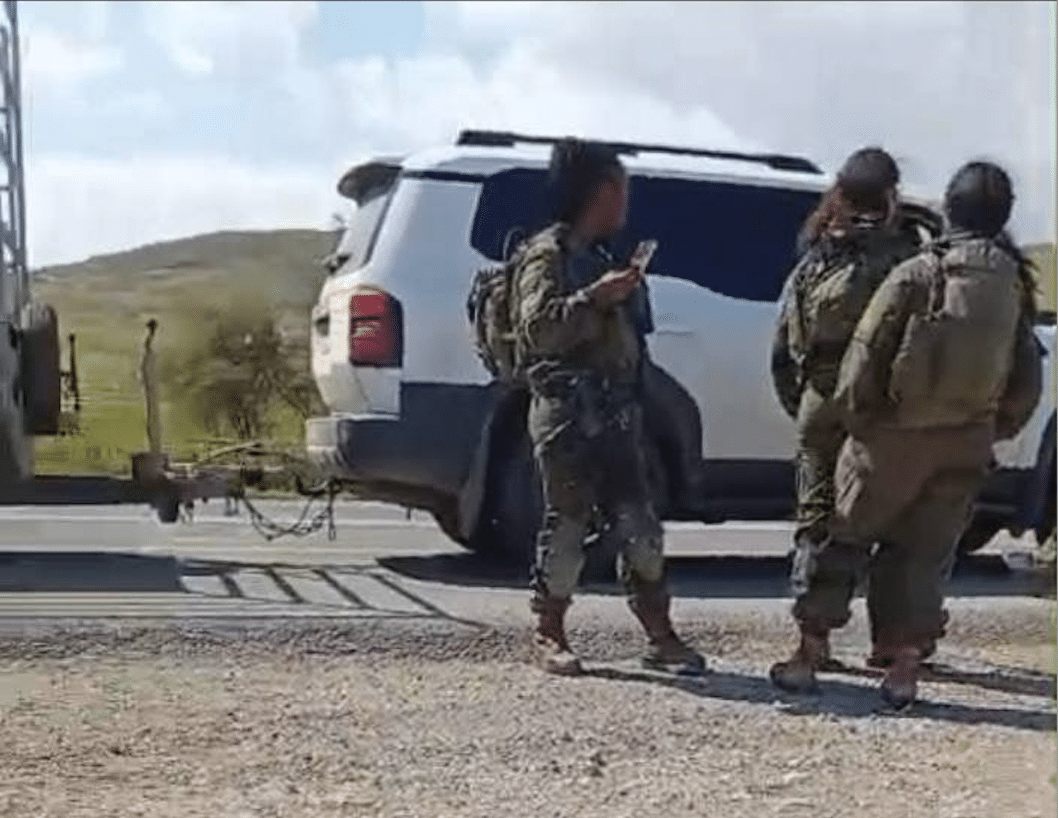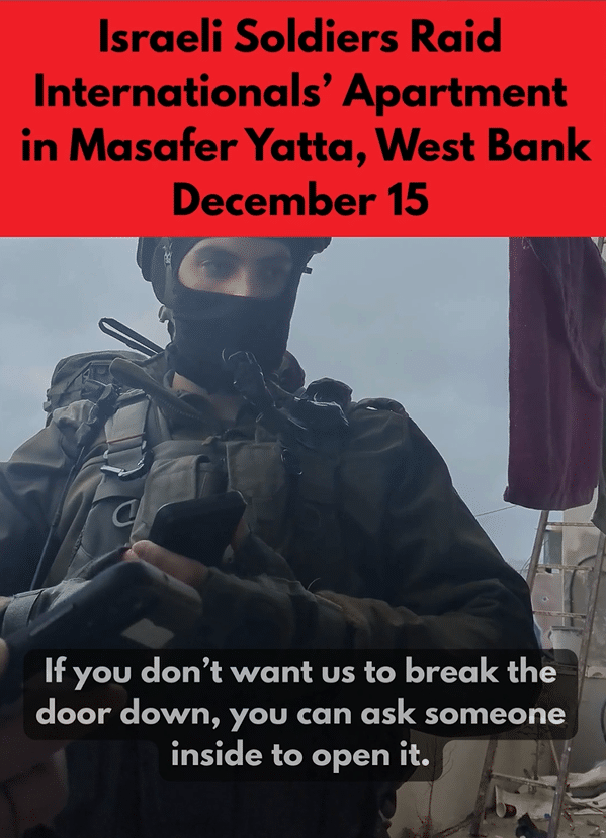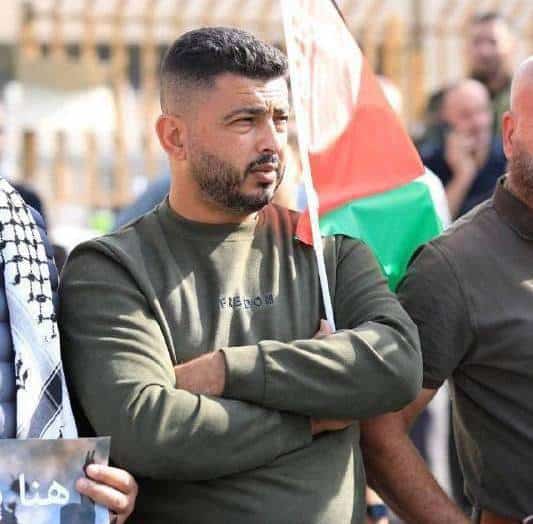Tag: Arrests
-
Three arrests of Palestinians in the Jordan Valley this week display coordination between Israeli settlers and military
Israeli settlers and military harassed several Palestinian families and a vegetable stand owner in the Jordan Valley. Each incident resulted in the arrest of the Palestinians being attacked, while Israeli settlers, present on the land illegally under international law, saw no repercussions for their violent actions. These arrests demonstrate how Israeli settlers and military work…
-
FOR IMMEDIATE RELEASE – A Day of Terror in Masafer Yatta: Occupation Army Brutally Arrests Elderly Palestinian Amputee and Raids Apartment of International Activists
Monday, 15 December 2025 Masafer Yatta – Yesterday morning, December 15, 2025, Israeli forces descended on Sheikh Said’s land in Rakiz, a village in Masafer Yatta. The Palestinian family had recently erected a razor wire fence to prevent settler sheep and ATVs from entering onto their land. The fence had only been there a short…
-
UPDATED: Palestinian Activist Ayman Ghrayeb Abused in Custody and Held in Administrative Detention
FOR IMMEDIATE RELEASESunday, November 23, 2025 Update 3/12/2025: https://www.frontlinedefenders.org/en/case/human-rights-defender-ayman-ghraieb-held-administrative-detention Ayman Ghrayeb, a prominent Palestinian grassroots activist based in the Jordan Valley, was arrested by Israeli forces on Monday, November 17, and was forcibly disappeared for two days before his lawyers were given any information about his whereabouts. During this time, Ghrayeb had been covertly held…



